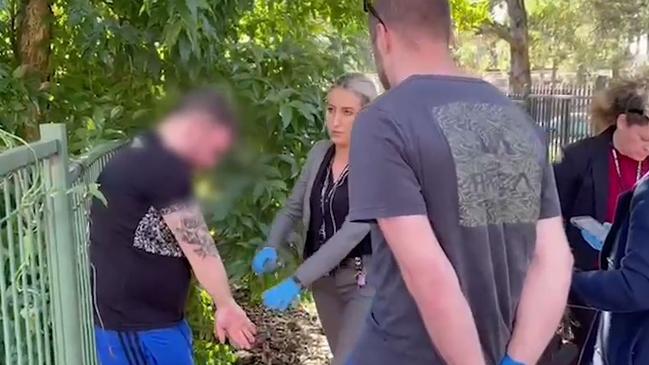Four men arrested as police warn parents about web predators
Following the arrest of three men in a online child exploitation investigation, police have warned parents to watch their children’s online activity these holidays.
Police & Courts
Don't miss out on the headlines from Police & Courts. Followed categories will be added to My News.
Parents should keep an eye on their kids’ online activity these school holidays, police have warned, with pandemic lockdowns creating opportunities for web predators.
In the past week alone in NSW, the Child Exploitation Internet Unit has arrested three men for allegedly chatting up teenagers for sex online.
While the men allegedly believed they were talking to children about their desired sexual acts, it was in fact police.
A fourth man, a 55-year-old man from Paddington, was charged on Thursday with transmitting child abuse material.

The spate of arrests is an example of how prevalent the behaviour is – and how easy it can happen.
“For young people, any online platform that allows them to be in contact with others that they do not know – and have only met in the online environment – can put them at risk,” Child Abuse and Sex Crimes Squad Commander Detective Acting Superintendent Chris Goddard said.
“While social media apps allow us to be better connected with people we know, they also provide opportunity for people we don’t know to connect with us – and this includes strangers talking to our children.
“With school holidays drawing closer, we want to remind the community to have regular conversations with children about their activities online and how they can keep themselves safe.”


This year, the CEIU has carried out 27 search warrants and arrested 26 people – an average of about one a week.
Since the pandemic began, police have also seen an increase in reports of children being groomed online.
Supt Goddard said that was either because of increased awareness and detections – with more parents working from home and children home schooling – or predators seizing on new opportunities.
“It is one of those things where people are at home so there is that oversight of what the kids are doing,” he said.
“And the predators are online more because they know kids are at home more.
“Its about parents having open conversations with their kids, asking who are you talking to and what are you talking about and looking at privacy settings.”




